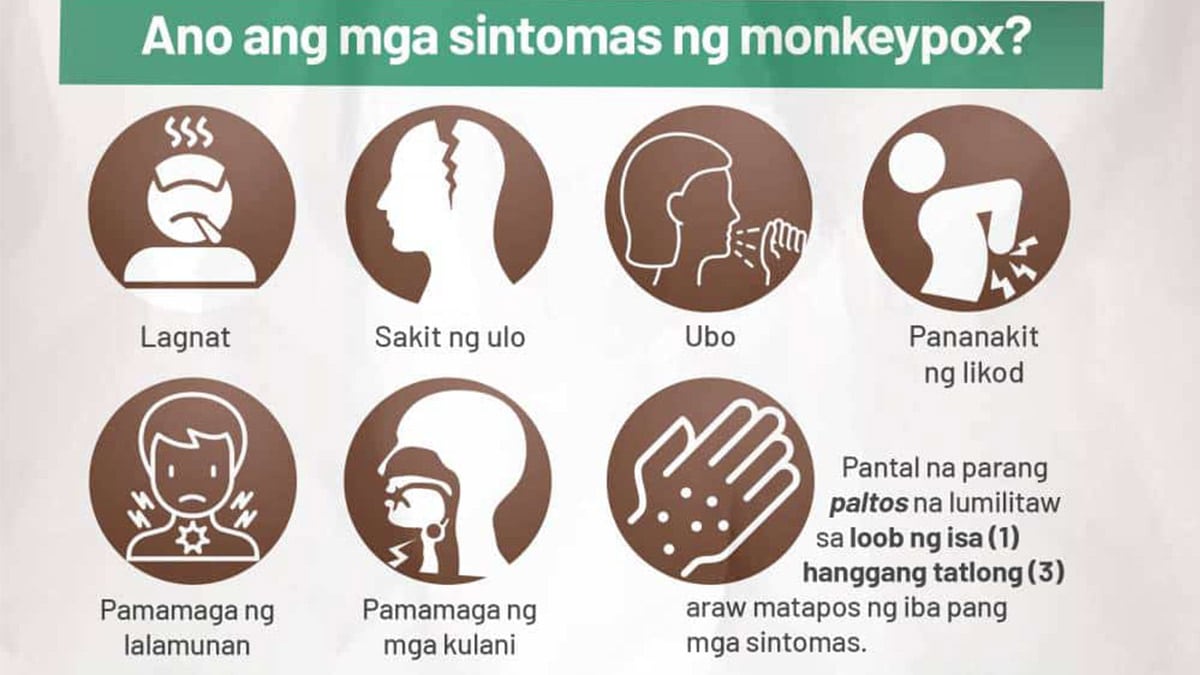
BE INFORMED The Department of Health (DOH) has issued through its website infographics about mpox symptoms for use on social media. —DOH PHOTO
MANILA, Philippines — The Commission on Human Rights (CHR) ) has urged the public to help eliminate the stigma surrounding the spread of mpox virus after several posts online claimed that it is a sexually transmitted disease.
The CHR issued the reminder on Tuesday, saying it is “crucial to remove any form of discrimination and bias to prevent further harm to affected individuals and communities.”
READ: Mpox cases in PH now at 18 – DOH
“This reminder arises from the persistence of numerous online posts claiming that mpox is a sexually transmitted disease, which has led to the stigmatization of the LGBTQI community,” the commission said.
“While the World Health Organization has confirmed that close contact amongst individuals—including intimate encounters—is a viable mode of virus transmission, circulating public warnings that focus solely on sexually active individuals can create dangerous misconceptions, falsely suggesting that Mpox is exclusively a sexually transmitted disease,” it added.
CHR likewise stressed that mpox should not be associated with any gender identity, sexual orientation, community, or specific activities.
“Such stigmatizing narratives deflect attention from the core public health concern and distort facts, which only perpetuates misinformation and fear. This results in discouraging people from seeking care through legitimate and safe health practices, thereby raising barriers to their fundamental right to health,” it said.
Aside from reminding the public, the commission also called for the immediate passage of the Sexual Orientation, Gender Identity, Gender Expression, or Sex Characteristics (SOGIESC) Equality Bill and the Comprehensive Anti-Discrimination Bill.
“These legislative measures are critical in ensuring the creation of safe and inclusive spaces for all individuals—spaces where every Filipino is free from stigma, discrimination, and hate. An inclusive and rights-based public health approach recognizes the inherent dignity of all people and prioritizes the protection and promotion of rights, particularly for marginalized populations,” it explained.
“[M]isleading information on Mpox cases fuels fear and isolation, preventing affected individuals from seeking the help they need due to fear of being prejudiced, thereby undermining public health efforts and access to equitable healthcare services. Health-related stigma is a significant barrier to the prevention of diseases, including treatment and care,” CHR added.
Last September 16, the Department of Health (DOH) said that it had recorded three new cases of Mpox, bringing the total count to 18.
According to DOH, five cases have recovered, while 11 cases are still undergoing home isolation and have not transmitted the virus to others.
No deaths have been reported due to mpox so far, it added. — Stefani Tacugue, INQUIRER.net intern

